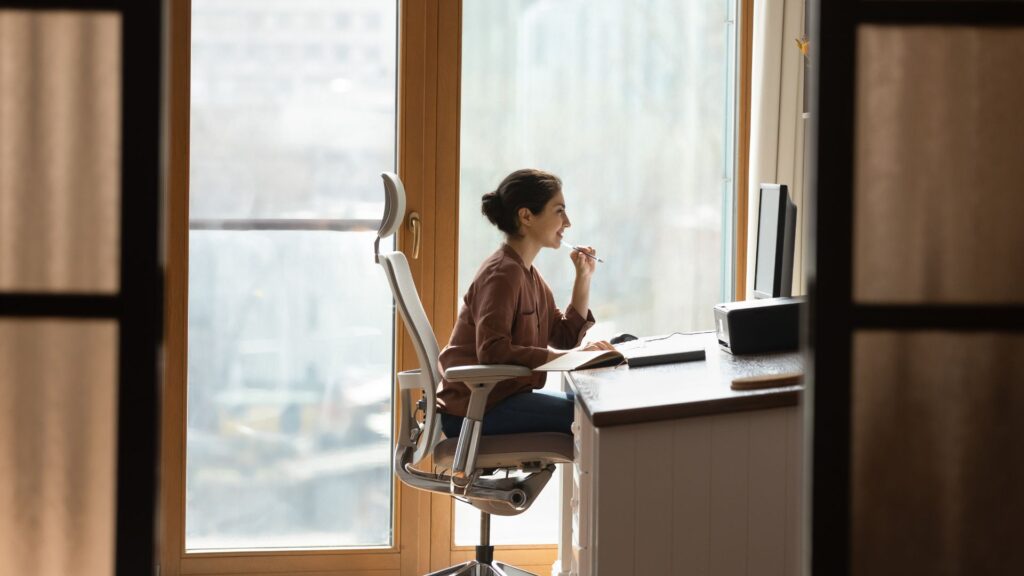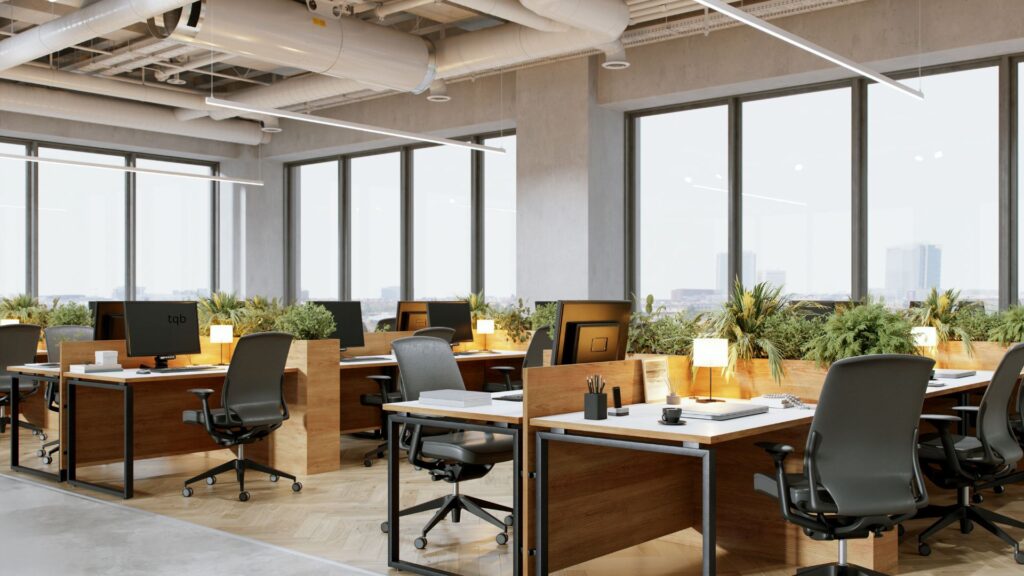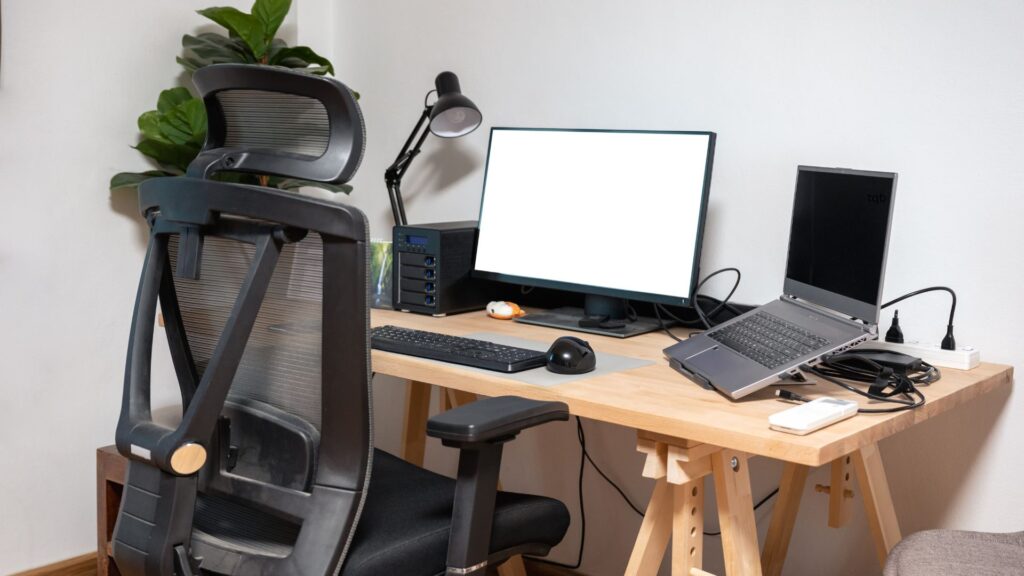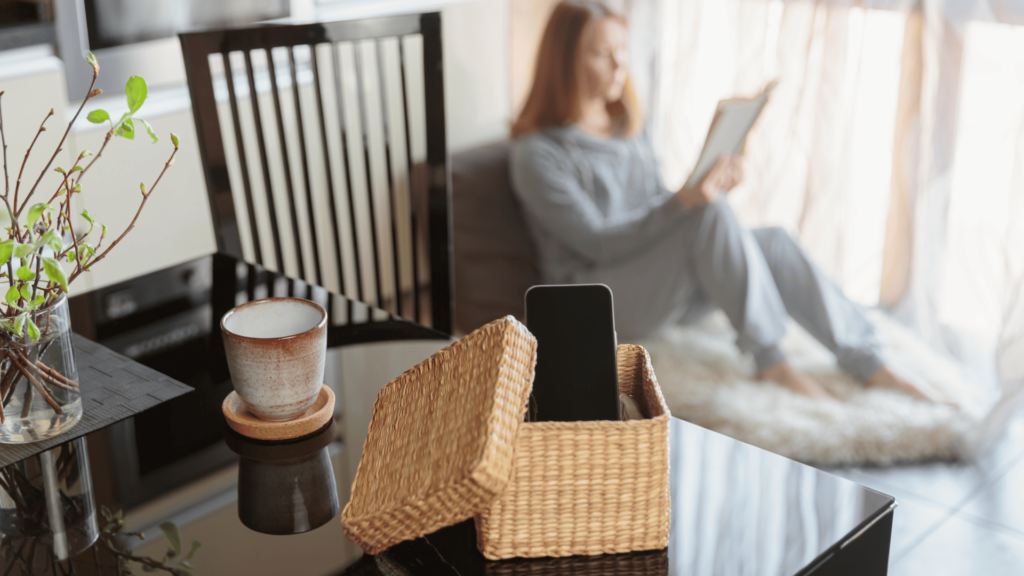Ever walked into your office or sat at your home desk and just felt…off? Maybe it’s the harsh white tube lights, the nonstop buzz of chatter around you, or the heat because someone doesn’t believe in air conditioning. You sit, sip your coffee, and try to shake off the fog—but it’s still there. Sound familiar?
Whether you work from a corporate glass building in Gurgaon or Delhi, a quaint café in Lisbon or Paris, or a home office in London or Chicago, your physical environment plays a massive role in your productivity. And the best part? You don’t need to knock-off the walls or buy expensive décor or furniture to make it better. Let’s explore how your surroundings can either boost your output or quietly sabotage your focus—and what simple, doable changes can fix that.
Why Work Environment Isn’t Just Aesthetic—It’s Psychological
Productivity isn’t just about calendars and to-do lists. It’s also about how your space makes you feel. Studies have repeatedly shown that light, noise, temperature, and layout all influence how we work.

Work Environment Realities Across India, Europe & the US
India: Controlled Chaos in High-Energy Spaces
Take a startup office in Bengaluru: bean bags, open desks, chai breaks, and whiteboards with colorful Post-its. Sounds exciting, right? But also—open-plan noise, inconsistent lighting, and often a mix of working barefoot and wearing headphones to drown out the buzz.
Common challenges:
- Overcrowded open spaces
- Harsh fluorescent lights
- AC battles between departments
- Minimal ergonomic furniture
Quick fixes:
- Noise-cancelling headphones (boon during power backup generator hums)
- Desk plants like money plants or areca palms
- Investing in lumbar cushions or laptop risers
Europe: Structured, Subtle, and Ergonomic-First
In a typical Amsterdam office, things feel calmer. There’s likely a standing desk, a shared espresso machine, and floor-to-ceiling windows. But the structure can feel rigid—less personalization, stricter hours, and often less room for cozy setups.
Common challenges:
- Less freedom to personalize space
- Lighting that’s too cold and sterile
- Ergonomics prioritized over comfort
Quick fixes:
- Add warm-toned desk lamps
- Small framed photos or quote cards (without overdoing it)
- Warm textiles like desk mats or footrests for comfort
United States: Hybrid Hustle and Remote Realities
From high-rise offices in New York to home setups in Austin, work in the US has gone hybrid. Many professionals now juggle video calls with toddlers in the background and back-to-back Zoom fatigue. At traditional offices, productivity pods and lounge zones coexist, but cubicles still exist in some places.
Common challenges:
- Remote work distractions at home
- Office cold zones due to aggressive AC
- Over-personalized desks leading to clutter
Quick fixes:
- Use room dividers to mentally “separate” work/home in small apartments
- Keep a clean “Zoom background zone”
- Keep a cozy throw or desk heater at the office (yes, really!)

The Silent Killers of Productivity (And Simple Fixes)
Clutter = Mental Static
That messy pile of bills on your desk? It’s not harmless. It takes up mental space.
Fix it with: A 2-minute rule—if you can clear or file something in 2 minutes, do it right away.
Bad Lighting = Brain Fog
Dim lighting in your Delhi apartment? Or the too-white office LEDs in Berlin? Both strain the eyes.
Fix it with: A warm-toned desk lamp or a light-diffusing curtain to soften natural light.
Noise = Attention Killer
Can’t hear yourself think in a Mumbai office? Or working from a shared flat in London?
Fix it with: White noise apps (like Noisli), soft background music, or scheduling “deep work hours” on your calendar.
Poor Ergonomics = Pain = Distraction
In many Indian homes, people work on dining tables. In the US, it might be the couch. Either way—your back pays the price.
Fix it with: Affordable laptop stands, external keyboards, and lumbar pillows.
Air Quality and Temperature = Invisible Drainers
Hot and humid Chennai? Dry winters in Chicago? Both can sap your energy.
Fix it with: A humidifier, an indoor plant, or simply opening up a window.
Remote vs. Office: Same Goals, Different Obstacles
| Feature | India | Europe | US |
| Home Setup Comfort | Often shared, makeshift | Dedicated work zones | Varied: from kitchen tables to home offices |
| Noise Levels | High (street, family, etc.) | Moderate (quiet neighborhoods) | Mixed (home + kids or roommates) |
| Office Environment | Energetic but chaotic | Ergonomic and controlled | Hybrid, tech-heavy |
| Personalization | Allowed, even encouraged | Controlled/minimalist | High degree of personalization |
Takeaway: No matter where you are, optimizing your space for how you work best is key.
Practical Tips to Boost Productivity—Starting Now
Try the 3-Zone Rule
Designate:
- Zone 1: Essentials (laptop, phone, notepad)
- Zone 2: Frequently used (charger, planner)
- Zone 3: Decorative (photos, plant, speaker)
Get Green
In India, place a Tulsi plant near your window. In Europe, a peace lily. In the US? A low-maintenance snake plant.
They clean air and help you breathe better.
Set the Mood with Scent
In the US, diffusers with citrus are popular. In Europe, lavender. In India, try sandalwood or camphor for a local and calming vibe.
Invest in a Chair (Or at Least a Cushion)
You can survive on a budget, but don’t skimp on posture. A ₹1000 cushion can prevent ₹10,000 in physio bills.
The 2-Minute Desk Reset
Before logging off, take 2 minutes to straighten your desk. You’ll thank yourself tomorrow.

Tech Tools That Help Across Time Zones
- Notion for clutter-free task lists
- Slack with Do Not Disturb settings is a popular productivity lifeline
- Focus apps like “Forest” and “RescueTime” are common with remote teams
Productivity tech tools in today’s world offer us a compete spectrum of choices that can be explored to fix the specific issue in your work area.
Conclusion: Create a Space That Works for You, Not Against You
Whether you’re sipping filter coffee in a crowded Bengaluru co-working space or typing away in a silent Berlin apartment, your environment is either fueling your flow—or quietly eroding it. And while we can’t all afford designer desks or soundproof offices, the real power lies in small, mindful upgrades.
From adding a plant to changing your chair height, these simple shifts can literally change how your brain processes work.
So take a look around—your next productivity breakthrough might be just a desk tweak away.
FAQs
1. I live in a small Indian apartment. How do I carve out a workspace?
Use a foldable table, a rug to define the area, or even a specific corner that’s only used during work hours. Boundaries matter more than square feet.
2. How can I work better in a cold European office?
Layer your clothing, use hand warmers, or keep a cozy shawl/throw. Warm bodies focus better.
3. What’s the best noise solution for shared US apartments?
Noise-cancelling headphones + scheduling deep work during quieter hours + communicating with roommates.
4. Do standing desks help?
Yes, when used right. Start small—try standing for 15–20 minutes per hour, especially after lunch.
5. What if I don’t feel motivated even in a well-set space?
Sometimes, it’s not the space—it’s burnout. Take a mental health break. Or shake things up with a café day or outdoor session.



